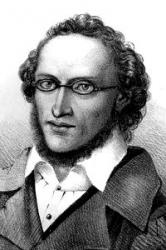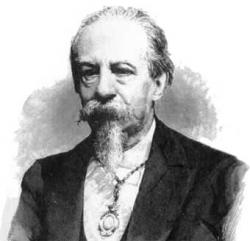Planning worship?
Check out our sister site, ZeteoSearch.org,
for 20+ additional resources related to your search.
- |
User Links
Person Results
Michael Morgan
b. 1948 Author of "Rejoice, You Righteous, in the Lord" in Psalms for All Seasons Michael Morgan (b. 1948) is a church musician, Psalm scholar, and collector of English Bibles and Psalters from Atlanta, Georgia. After almost 40 years, he now serves as Organist Emeritus for Atlanta’s historic Central Presbyterian Church, and as Seminary Musician at Columbia Theological Seminary. He holds degrees from Florida State University and Atlanta University, and did post-graduate study with composer Richard Purvis in San Francisco. He has played recitals, worship services, and master classes across the U. S., and in England, France, Spain, Switzerland, and Germany. He is author of the Psalter for Christian Worship (1999; rev. 2010), and a regular contributor in the field of psalmody (most recently to the Reformed collections Psalms for All Seasons and Lift Up Your Hearts, and the new Presbyterian hymnal, Glory to God).
Michael Morgan
Michael Morgan
Matthias Loy

1828 - 1915 Person Name: M. Loy Author of "At Jesus' Feet Our Infant Sweet" in American Lutheran Hymnal Loy, M., President of the Capital University, Columbus, Ohio, contributed several original hymns, and translations from the German, to the Evangelical Lutheran Hymnal. Published by Order of the Evangelical Lutheran Joint Synod of Ohio and Other States. Columbus, Ohio, 1880.
The translations may be found through the Index of Authors, &c.; the original hymns are the following:—
1. An awful mystery is here. Holy Communion.
2. At Jesus' feet our infant sweet. Holy Baptism.
3. Come, humble soul, receive the food. Holy Communion.
4. Give me, 0 Lord, a spirit lowly. Humility desired.
5. God gave His word to holy men. Inspiration of Holy Scripture.
6. God of grace, Whose word is sure. Faithfulness.
7. How matchless is our Saviour's grace. Holy Baptism.
8. I thank Thee, Saviour, for the grief. Lent.
9. Jesus took the lambs and blest them. Holy Baptism.
10. Jesus, Thou art mine for ever. Jesus, All and in All.
11. Launch out into the deep. Call to Duty.
12. Listen to those happy voices. Christmas.
13. O Great High Priest, forget not me. Confirmation.
14. O Lord, Who hast my place assigned. Daily Duties.
15. Our Shepherd of His ransomed flock. Holy Communion.
16. The gospel shows the Father's grace. Holy Scripture.
17. The law of God is good and wise. Holy Scripture.
18. Though angels bright escape our eight. St. Michael and All Angels.
19. When Rome had shrouded earth in night. The Reformation.
20. When souls draw near the holy wave. Confirmation.
Several of these hymns, together with some of his translations, previously appeared in the Ohio Synod's preceding Collection of Hymns (3rd ed., 1858; 4th, 1863).
--John Julian, Dictionary of Hymnology (1907)
====================
Loy, Matthias, D.D., p. 700, i. Dr. Loy was born in Cumberland County, Pennsylvania, March 17, 1828. He studied at the Evangelical Lutheran Theological Seminary at Columbus, Ohio, of which he became Professor of Theology in 1365. He was appointed President of the Capital University in 1880.
--John Julian, Dictionary of Hymnology, Appendix, Part II (1907)
==================
See also in:
Wikipedia
Matthias Loy
Maria Frances (Hill) Anderson
1819 - 1895 Person Name: Mrs. M. F. Anderson, 1819- Author of "Our country's voice is pleading" in Methodist Hymn and Tune Book Anderson, Maria Frances. (Paris, France, January 30, 1819--October 13, 1895, Rosemont, Pennsylvania). Baptist. Daughter of Thomas F. Hill of Exeter, England. Married Rev. George W. Anderson, 1847. Author of several works on Baptists and missions for which she often used the pen name, L.M.N. Asked by George B. Ide, pastor of First Baptist Church, Philadelphia, to write a home mission hymn for the Baptist Harp (1849) in the same meter as Bishop Heber's "From Greenland's icy mountains." This hymn, "Our country's voice is pleading" was first sung in a home mission meeting at that Philadelphia church soon after the Baptist Harp was published. Another hymn appearing in the same collection and subtitled "The Bereaved Husband" begins "Yes she is gone, yet do not thou The goodness of the Lord distrust."
--Deborah Carlton Loftis, DNAH Archives
===========================================
Anderson, Maria Frances, born in Paris, France, Jan. 30, 1819, and married to G. W. Anderson, Professor in the University of Lewisburg, Pennsylvania. Two of her hymns are given in the Baptist Harp, 1849. Of these— "Our country's voice is pleading," has come into common use. [Rev. F. M. Bird, M.A.]
--John Julian, Dictionary of Hymnology (1907)
=================
Anderson, Maria Frances, née Hill, p. 67, i., is the daughter of Thomas F. Hill, of Exeter, England, and a Baptist. She published in 1853 Jessie Carey, and in 1861, The Baptists in Sweden.
--John Julian, Dictionary of Hymnology, Appendix, Part II (1907)
=================
Maria Frances (Hill) Anderson
Ottiwell Heginbotham
1744 - 1768 Person Name: O. Heginbotham Author of "Come, Shout Aloud the Father's Grace" in Grateful Praise Heginbothom, Ottiwell, born in 1744, and died in 1768, was for a short time the Minister of a Nonconformist congregation at Sudbury, Suffolk. The political and religious disputes which agitated the congregation, in the origin of which he had no part, and which resulted in a secession and the erection of another chapel, so preyed upon his mind, and affected his health, that his pastorate terminated with his death within three years of his appointment. His earliest hymn, "When sickness shakes the languid corse [frame]," was printed in the Christian Magazine, Feb. 1763. In 1791 the Rev. John Mead Ray communicated several of Heginbothom's hymns to the Protestant Magazine; and in the same year, these and others to the number of 25, were published as:—
Hymns by the late Rev. Ottiwell Heginbothom of Sudbury, Suffolk. Sudbury, Printed by J. Burket, mdccxciv.
These 25 hymns were repeated in J. M Ray's Collection of Hymns from various authors in¬tended as a Supplement to Dr. Watts's Psalms and Hymns, 1799, and 12 in Collyer's Collection, 1812. In modern collections in Great Britain and America the following are in common use in addition to those annotated under their respective first lines:—
1. Blest Jesus, when my soaring thoughts. Jesus, most Precious.
2. Come, humble souls; ye mourners come. Good Hope through Grace.
3. Come saints and shout the Saviour's praise. The Second Advent.
4. Come, shout aloud the Father's grace. Praise to God the Father.
6. Father of mercies, God of love. God the Father.
6. God of our life! Thy various praise. New Year.
7. Great God, let all our [my] tuneful powers. New Year.
8. Hark, the loud trumpet of our God. National Fast.
9. Hark, 'tis your heavenly Father's call. A Prayer to be used by the Young.
10. I ask not [honour] wealth, nor pomp, nor power. Wisdom and Knowledge desired.
11. Now let my soul, eternal King. Praise of the Gospel. Sometimes given as "To Thee, my heart, eternal King."
12. See, mighty God, before Thy throne. Fifth of November; a National Hymn.
13. Sweet peace of Conscience, heavenly guest. A good Conscience.
14. To Thee, my Shepherd, and my Lord. The Good Shepherd.
15. Unhappy city, hadst thou known. Christ weeping over Jerusalem. From this the cento, "And can mine eyes without a tear?" is taken.
16. When sickness shakes the languid corse [frame]. Resignation. Printed in the Christian's Magazine, Feb. 1763, and again in Hymns, &c, 1794.
17. Yes, I will bless Thee, O my God. Praise of the Father. The text is often altered. The cento "My soul shall praise Thee, O my God," in the Unitarian Hymn land Tune] Book, &c, Boston, 1868, is from this hymn.
Most of these hymns are in Collyer's Collection, 1812. There are also 8 in Hatfield's Church Hymn Book, N.Y., 1872, and 7 in the Songs for the Sanctuary, N.Y., 1865. [William T. Brooke]
-- John Julian, Dictionary of Hymnology
Ottiwell Heginbotham
Joseph Mainzer

1801 - 1851 Person Name: Mainzer Gesangbuch Composer of "ELLACOMBE" in American Lutheran Hymnal Abbe Joseph Mainzer, b. Trier, 1807; d. Mancehster, 1851
Evangelical Lutheran Hymnal,
======================
Born: October 21, 1801, Trier, Germany.
Died: November 10, 1851, Higher Broughton (near Manchester), England.
Mainzer was educated at the Maîtrise of Trier Cathedral. Having studied engineering, he worked in mines at Saarbrücken, but was ordained in 1826 and after a few years became an abbé. He left Germany in 1833 for political reasons, settling in Brussels, then Paris, and Britain in 1839, living first in Edinburgh, then, after 1847, in Manchester. He published the Musical Times and Singing Circular. Novello took over the publication in 1844, renaming it the Musical Times.
Sources:
Pratt, p. 622
http://www.hymntime.com/tch/bio/m/a/i/mainzer_j.htm
=====================
http://en.wikisource.org/wiki/Mainzer,_Joseph_(DNB00)
Joseph Mainzer
Alberto Merubia
1919 - 2013 Person Name: Alberto Merubia, b. 1919 Translator of "When Jesus Came to Jordan (Cuando al Jordán Fue Cristo)" in Oramos Cantando = We Pray In Song
Alberto Merubia
José Zorrilla

1817 - 1893 Person Name: José Zorrilla y Moral (1817-1893) Author of "¡Señor, yo te conozco!" in Himnario Adventista del Séptimo Día
José Zorrilla
Robert Nicoll
1814 - 1837 Author of "An offering to the shrine of pow'r" in Jubilate Deo Nicoll, Robert, was born Jan. 7, 1814, at Auchtergaven, Perthshire. At the age of 13 he began to write verse. In 1835 he opened a circulating library in Dundee, and in the following year he became the editor of the Leeds Times. This he retained for a short time only. Broken in health through taxing his strength too much, he died in 1837, He was a successful writer, and is often referred to as "a second Burns." His Poems and Lyrics were published in 1835; 2nd ed., with numerous additions and Memoir, 1842; 3rd ed. 1852.
From these Poems the following pieces are taken:—
1. An offering to the shrine of power. The Reformers.
2. I may not scorn the meanest thing. Humility. This and No. 1 date 1835.
3. Lord, from Thy blessed throne, (People's Anthem.) (1842.)
--John Julian, Dictionary of Hymnology, Appendix, Part II (1907)
Robert Nicoll
Harriet Phillips
1806 - 1884 Person Name: Phillips Author of "We Bring No Glittering Treasures" in Peerless Praise Phillips, Harriet Cecilia, was born in Sharon, Connecticut, in 1806, and was for many years an active worker in Sunday Schools in New York city. She contributed five hymns to the Rev. W. C. Hoyt's Family and Social Melodies, 1853, and has also written for various magazines. "We bring no glittering treasures" (Sunday School Anniversary), was written circa 1848 for a Sunday School Festival in New York city, and published in the Methodist Episcopal Hymns, 1849 (Nutter's Hymn Notes, 1884, p. 31l).
--John Julian, Dictionary of Hymnology, Appendix, Part II (1907)
Harriet Phillips


 My Starred Hymns
My Starred Hymns


